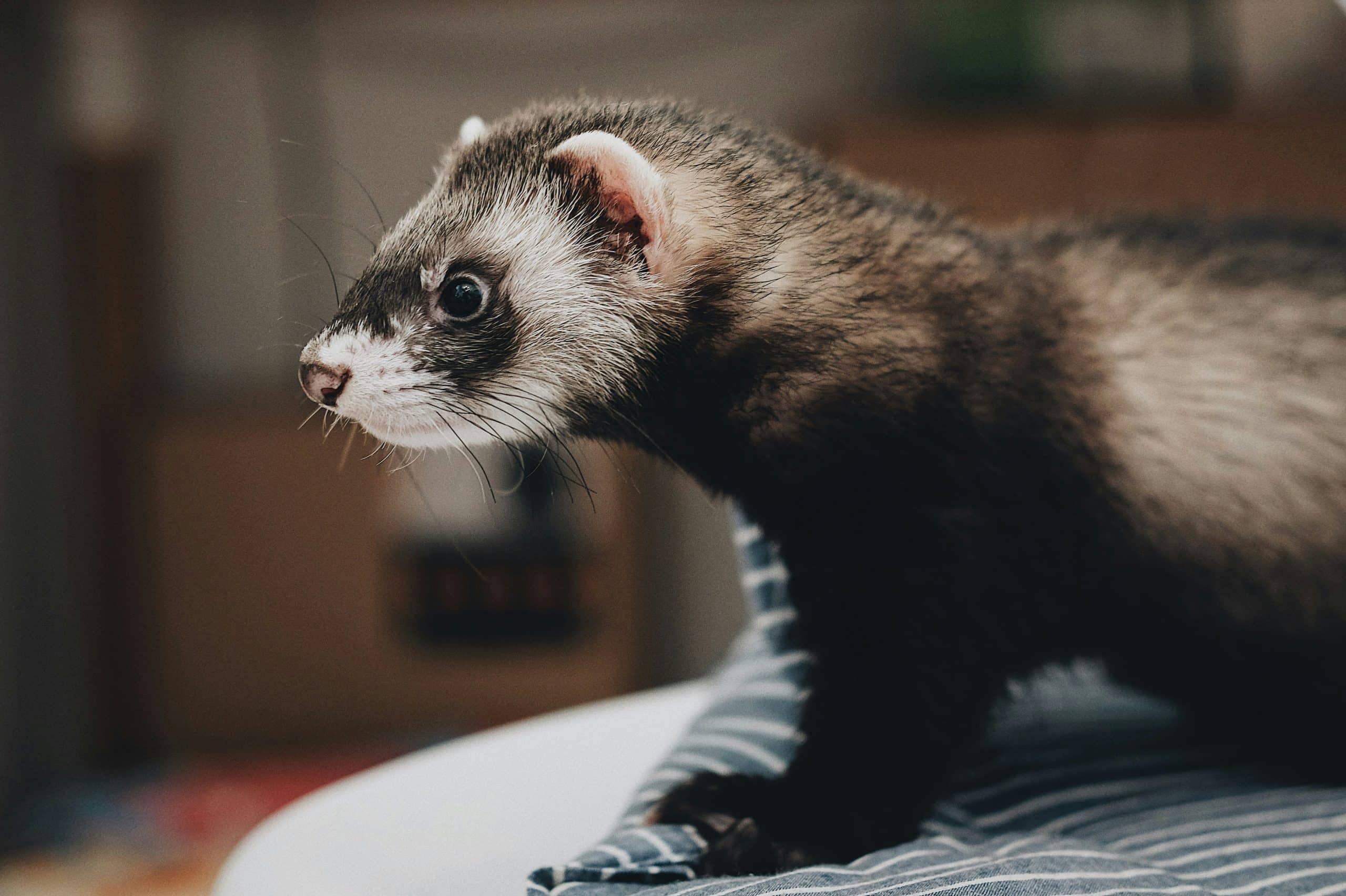Can Ferrets Coexist with Other Household Pets?

Are you a pet owner considering adding a ferret to your furry family? Or perhaps, you’re the proud parent of a ferret, and are thinking about bringing a cat, a dog, or some other animal into your home? Whatever the case, the question remains: Can ferrets coexist with other household pets? The answer is not as straightforward as you may think.
Ferrets are unique animals, and their interactions with other pets can be unpredictable. It’s crucial to understand their behavior, needs, and natural instincts to ensure a harmonious shared living space for all your pets.
A voir aussi : What Are the Best Tips for Safely Hiking with Your Dog in Wildlife Areas?
Ferrets and Cats: A Possible Pair
Now, let us delve deeper and start with the age-old rivals: cats and ferrets. Cats, with their independent demeanor, and ferrets, with their playful and curious nature, seem like unlikely pals. However, under the right circumstances, these two animals can form quite the bond.
Ferrets are known to be social creatures who enjoy the company of others. Cats, while more independent, also enjoy playing and can form strong bonds with other animals, including ferrets. However, it’s not all smooth sailing; there are a few considerations to keep in mind.
A découvrir également : What’s the Right Way to Socialize a Puppy with Other Animals?
The key lies in the introduction phase. It is critical to gradually introduce the cat and ferret, ensuring both animals feel safe and comfortable. Start by allowing them to sniff each other through a barrier, such as a closed door or a cage. As they grow accustomed to each other’s scent and presence, you can gradually allow supervised, direct interaction.
Despite the potential for friendship, remember that cats are predators and ferrets are often classified as prey animals. So, always monitor their interactions, especially in the beginning. Make sure your cat doesn’t mistake your ferret for prey, and vice versa.
Ferrets and Dogs: A Tale of Two Personalities
Now let’s move on to dogs. Dogs come in all shapes and sizes, with personalities as diverse as their breeds. Some dogs might get along fabulously with ferrets, while others might not.
Predatory instinct is one factor to consider here. Certain breeds have a stronger prey drive, making it difficult for them to distinguish between a toy and a small animal like a ferret. In contrast, other breeds have a gentle temperament and are less likely to see the ferret as prey.
Similar to cats, a gradual introduction is crucial. Allow your dog and ferret to become familiar with each other’s scent before any face-to-face meeting. Start with short, controlled interactions, and reward good behavior with treats and praise. Always supervise their time together, at least initially.
Remember, dogs can unintentionally harm ferrets during play due to their size difference. So, make sure your dog understands gentle play. Training your dog can be a big help here.
Ferrets with Other Small Pets: An Unpredictable Match
Keeping a ferret with other small pets such as guinea pigs, rabbits, or birds can be a bit more challenging. Ferrets are carnivores and have a natural instinct to hunt smaller animals. Even if your ferret is well-fed, it may still see other small pets as potential prey.
That being said, there are exceptions to every rule, and some ferrets may live peacefully with smaller animals. Again, the key is slow, supervised introductions and constant vigilance.
In the early stages of introduction, ensure the smaller pet is secure in a cage, and let the ferret sniff around. Gradually, you can allow supervised interaction. However, never leave the ferret alone with the smaller pet.
The Role of The Owner in Ferret-Pet Relationships
As pet owners, you play a crucial role in determining whether your ferret will get along with other pets. It’s your responsibility to ensure all animals feel secure in their living environment. Patience, supervision, and understanding your pets’ individual temperaments are crucial.
Proper socialization is also key. Ferrets that are used to being around other animals from a young age will be more likely to form positive relationships with them. Similarly, exposing your other pets to different animals can also increase the likelihood of them accepting a ferret into their space.
One last piece of advice: keep an eye on the behavior of all your pets. If any of your animals consistently show signs of stress or aggression when around the ferret, it might be best to keep them separated. The well-being and safety of all your pets should always be your top priority.
Ferrets and Exotic Pets: A Delicate Balance
Venturing into the world of exotic pets, let’s consider how ferrets coexist with reptiles, birds, or fish. Keeping a ferret with these animals can indeed be tricky. These pets have very different needs and behaviors compared to ferrets, and their interactions can be risky if not managed well.
Ferrets are naturally inquisitive and might be intrigued by the movement and colors of fish or birds. This curiosity could easily turn into a hunt, given ferrets’ carnivorous instincts. For this reason, keeping your fish tank or bird cage in an area inaccessible to your ferret can help prevent any accidents.
Reptiles such as turtles, snakes, and lizards can seem like an interesting playmate for ferrets. However, there’s a potential risk on both sides. Reptiles could harm the ferret unintentionally with their defensive mechanisms, and the ferret’s playful nature might stress the reptile. Always keep your reptiles in secure enclosures away from your ferret’s reach.
In general, it’s advisable to keep interactions between ferrets and these exotic pets to a minimum. In the rare instances when they do interact, ensure that it is under strict supervision. Remember, the health and safety of all your pets should be your primary concern.
Creating a Harmonious Household: The Final Verdict
Can ferrets coexist with other household pets? The answer largely depends on the individual temperament of the pets involved, the owner’s commitment, and diligent supervision.
Cats, dogs, and other small pets can potentially share a home with ferrets. However, always remember that careful introductions, continual supervision, and understanding each pet’s instincts and behaviors are essential.
Having a household with a mix of pets, including ferrets, can be a rewarding experience. It requires patience and effort, but the bonds formed and the joy derived from observing these diverse interactions can be truly enriching. Always prioritize the well-being of your pets, and appreciate the unique personality each one brings to your home.
It’s also important to remember that every pet, including ferrets, has a unique personality. Just because one ferret gets along well with cats or dogs doesn’t mean all will. Be prepared for a range of outcomes and be patient.
In conclusion, if you are considering adding a ferret to your pet-filled household or introducing new pets to your ferret, it’s a journey worth embarking on with caution, knowledge, and lots of love. With the right approach, your pets can live together in harmony, ensuring a warm, lively, and loving environment for all.
